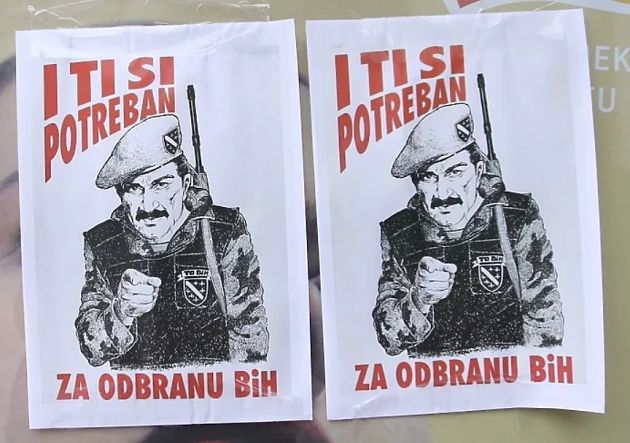The situation in the Balkans is becoming increasingly tense. The conflict over Kosovo, which we cover, is escalating. Tensions are also rising over the church conflict and the new post-election reality in Montenegro.
In the first case, the parties are already actively using weapons and occasionally using them, while in the second case they are actively using military mobilization rhetoric.
Another conflict in the region where military rhetoric is being actively used and a new war could become a reality is in Bosnia and Herzegovina (BiH), which we wrote about recently. BiH Co-President Milorad Dodik, who represents the Republika Srpska (Serb Republic) within the state, announced that the BiH authorities have made a final decision to begin the process of leaving the country and declaring their own independence.
It should be noted that Dodik, as a nominal state official of BiH, has never hidden his attitude towards the Republic of Srpska as a part of BiH and his desire to separate from it and join neighboring Serbia. However, it seems that Dodik has never gone so far and never been so serious and uncompromising in his separatist intentions. This, in turn, has provoked a corresponding reaction from Muslim Slavs (Bosniaks)…
During Friday sermons, some imams called on Bosnian Muslims to prepare for jihad — the armed defense of Muslim lands. In the streets of the capital, Sarajevo, a poster has appeared that was used during the last war — with an armed person in the uniform of the Bosnian army pointing a finger at the viewer, and the caption: «And you are needed to defend Bosnia and Herzegovina.»
The reposting by Bosnia and Herzegovina’s consul in Frankfurt, Amir Otovich, of a publication by the imam of the Jamaat «Ferhadiya,» Muhammad Velic, calling on Muslims to prepare for the defense of the country, caused a particular stir. Pro-Serb and pro-Croat chauvinist propaganda presented this as an example of the fusion of BiH state institutions with «Islamic extremism» and «jihadism».
The sentiments among the Islamic-oriented Bosniaks now resemble, in a way, the sentiments in Azerbaijan a year ago before the start of the Patriotic (Second Karabakh) War. And the analogies are apt. Just like the so-called Nagorno-Karabakh Republic, the so-called Serbian Republic of Bosnia and Herzegovina was created through mass ethnic cleansing and expulsion of the non-Serb population.
The difference is that after the Dayton Agreement in 1997, the Bosniaks recognized this Serb Republic on the condition that it would return to BiH and be given very broad autonomy and powers. But this recognition was made with the understanding that the expelled Muslims would gradually return to their homelands, and thus the peaceful reintegration of this republic into multi-ethnic Bosnia would take place.
Now, however, Serb chauvinists, who have blocked these processes all these years, are declaring the end of «Dayton», the official separation from BiH and accession to Serbia. Bosniak leaders respond that if the Republic of Srpska is not in BiH, then it will not exist at all — the country will restore its previous pre-Dayton constitution and forcibly regain the occupied territories.
Thus, in case the Serb separatist chauvinists declare independence, the matter will depend on the political decision of the BiH leadership. Muslim jamaats are morally prepared for jihad for the liberation of the occupied territories. Moreover, as in the case of Karabakh, such a war would take place under the banner of an internationally recognized state and in defense of its internationally recognized borders.
However, considering the desire to join the EU and NATO, the leadership of Bosnia and Herzegovina will look for alternative options until the last minute. For example, a blockade of the separatist entity and the imposition of sanctions against it and its officials by the EU are possible. And if it is supported by Serbia, the extension of these sanctions to Serbia and the torpedoing of its EU membership.
Insha’Allah, we will continue to follow the developments in this region and keep our readers informed. One thing can already be said — the political temperature in the Balkans is rapidly rising to dangerous pre-war levels.

